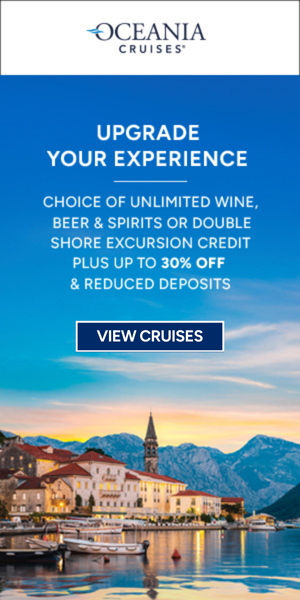Expert to Agents: You Need to Use Social Media
by Chris RyallSocial media can be an intimidating marketing tool for travel agents. They realize it’s critical to promote their travel services to existing and potential clients but many feel both overwhelmed and uncertain how to use social media.
Despite that, agents need to embrace social media and use it as part of their marketing strategy, according to Ron Cates, international director, digital marketing education for Constant Contact. “You engage with your customers – they are advocating for you.”
Cates, who spoke at the Travel MarketPlace conference last month in Toronto, outlined the main social media channels agents can use to develop an effective social media strategy. Cates is international director, digital marketing education for Constant Contact.
Majority of businesses use social media
In 2008 only 10% of businesses used social media marketing with email being the original form of social media, Cates said. Today the majority of businesses use one or many social media channels.
Agents are reluctant to embrace social media for a number of reasons, according to Cates.
Among agents’ chief concerns are that they won’t have enough Twitter followers or Facebook friends, they don’t know what to say content wise or they just don’t have enough time in the day to allocate to social media.
There is, however, the “Digital forgiveness” aspect of social media that means users needn’t always post original content; they can just retweet something they like that may be of interest to clients, said Cates.
There are more than 1,000 social media platforms, making it impossible to be on all of them, he added.
Choose one—or a couple—to start
Most businesses use Facebook, Pinterest, Twitter, Instagram, and LinkedIn, according to Cates who advised agents to choose one or a couple to start with and build on providing content with those.
“Incite them [followers] to comment,” Cates said, adding that engagement is critical for social media strategies.
For example, if agents have a Facebook page for their agency—or themselves if they are home-based—they need to create an editorial calendar, Cates explained.
“Plan what you are going to post – keep it timely and relevant,” he said. “Keep it visually interesting.” Visual content is five more times engaging than text, according to Cates.
“Monitor your page and make sure to respond. Get people to ‘like’ you or post a comment.”
Facebook
Currently Facebook is the most popular social media platform for businesses with 89% using it for B2C (business to consumer) and 81% for B2B (Business to Business), according to Cates.
He said Facebook content is low volume but high value and agents should do a minimum of three posts per week and a maximum of 10 posts per week.
Engage with Facebook friends by getting likes, comments, invite conversations, ask questions, and use images and videos, he added. Provide useful information, tips and suggestions.
“Don’t post blatant commercial advertisements – be subtle,” he said.
Twitter
Twitter is also a very popular platform with 80% of businesses using it for B2C and 85% for B2B. Unlike Facebook, it’s a high volume social media channel but has lower value.
Quantity is more important with Twitter than Facebook; it’s advisable to tweet five times per day with really no maximum, Cates said.
Twitter, he added, is more about sharing content and retweeting to followers. It’s less a matter of how many followers one has than it is about the quality of followers and their level of engagement.
LinkedIn
LinkedIn is a more professional and formal platform with 71% of businesses using it for B2C and 91% for B2B. The volume of content is less but the value is high.
Cates suggested that agents do a minimum of two posts a week with a maximum of five posts. He also urged agents on LinkedIn to provide a complete profile and summary of their experience, business and services.
Pinterest is less commonly used with only 53% of businesses using it for B2C and 34% B2B. It is both a high volume and high value platform.
Quality images are important on Pinterest and generate more response, Cates said. It’s an excellent platform especially for engaging those with a special interest or niche.






















